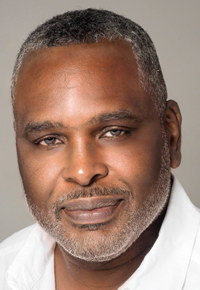Technically Speaking
By Perry Busby
“Cocaine is a hell of a drug,” legendary R&B artist Rick James once said on an episode of Chappelle’s Show, when asked about a series of events comedian Charlie Murphy hilariously claims he witnessed.
Considering Rick’s well-known reputation for showing up to concerts stoned and passing out a few times, I’m inclined to take him at his word.
Like Rick James, American voters are explaining their actions, and in some cases inaction, through their addiction. Unlike cocaine or opioids, the drug Americans prefer will never be viewed as an epidemic, despite its corrosive impact on our communities and system of governance.
Americans drug of choice is a psychedelic sedative, a concoction comprised of apathy and complacency. It enables the user to comprehend the need for change, while simultaneously convincing the user that there is nothing he or she can do, personally, to enact change. Among social addicts—those users committed solely to praying for change, tweeting and posting on Facebook about change, signing an occasional online petition and voting in most elections—it lulls the user into a sense of self-accomplishment for their active sideline participation.
All addicts face a moment of reckoning; a time when the user must decide between pursuing the next high and falling deeper into dependency or denying the urge and face the challenges that come with sobriety. America’s moment of reckoning began the day after the 2016 General Election.
After two years of party leaders locked in a partisan stalemate while the current administration dismantles every achievement that doesn’t bear its gold-plated brand, American voters, and African American voters specifically, must now answer the pivotal question: Do I accept a status quo leadership even though things aren’t as well as I’d like? Or, do I disrupt my comfortable life to actively engage in bringing about the changes, including leadership, that I want?
Frederick Douglass, the famous abolitionist and former slave famously said, “Find out just what any people will quietly submit to and you have the exact measure of the injustice and wrong which will be imposed on them.”
Douglass’s words hold true to this day. Many of us are sitting idly by as leaders in one party chip away at rights already established, while leaders in the other party provide a bucket load of ideas for the future but no plan for disrupting the other party’s current efforts.
For Florida voters, one pressing issue which comes to mind that require our immediate attention is Amendment 4. It is a measure to automatically restore the right to vote for people with prior felony convictions, except those convicted of murder or a felony sexual offense, upon completion of their sentences, including prison, parole, and probation.
In November 2018 Florida voters passed Amendment 4 with a near two-thirds majority (64.5%) of the vote. After its implementation on January 8, 2019, the Secretary of State asked for direction on implementation and definitions because county election supervisors were asking questions. Initially Senate President Bill Galvano (R-21) said, “By a lot of accounts, there’s no action even required for its implementation.” And proponents of the amendment said that the initiative’s language is self-executing and did not require implementing legislation.
State Legislators eventually passed a bill on May 3rd, requiring ex-offenders to pay all financial obligations from their sentencing or get these obligations excused by a judge before they can have their voting rights restored. Adding this additional requirement will create a significant reduction in the estimated 1.5 million citizens who would have had their rights restored under the original language of the amendment.
Governor Ron DeSantis has said he would not veto the measure if it passed. The governor has yet to sign the bill, however the bill will automatically go into effect on July 1, with or without the governor’s signature. I don’t know about you, but this sleight of hand move by the governor looks, sounds and smells equivalent to childish prank of farting in a room and leaving.
It is critically important that Floridians let the governor that he cannot allow legislators to overrule the will of the people and he cannot abdicate his authority by not signing the bill. It may also be helpful to remind the governor that he received slightly more than 4 million votes, which is less than the 5.1 million people who voted for Amendment 4.

